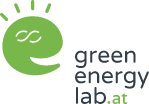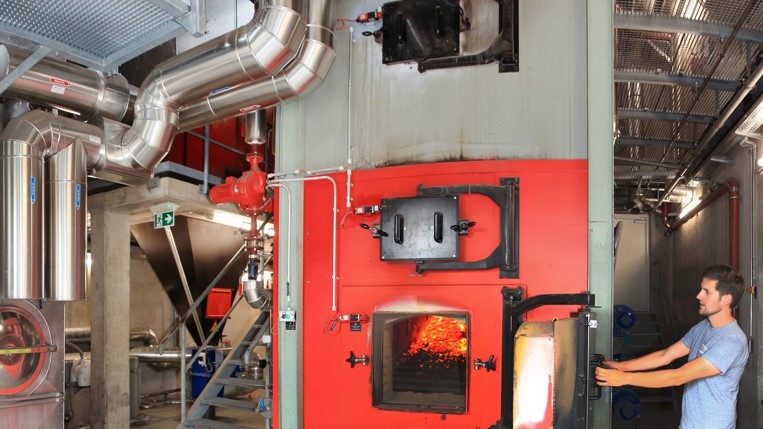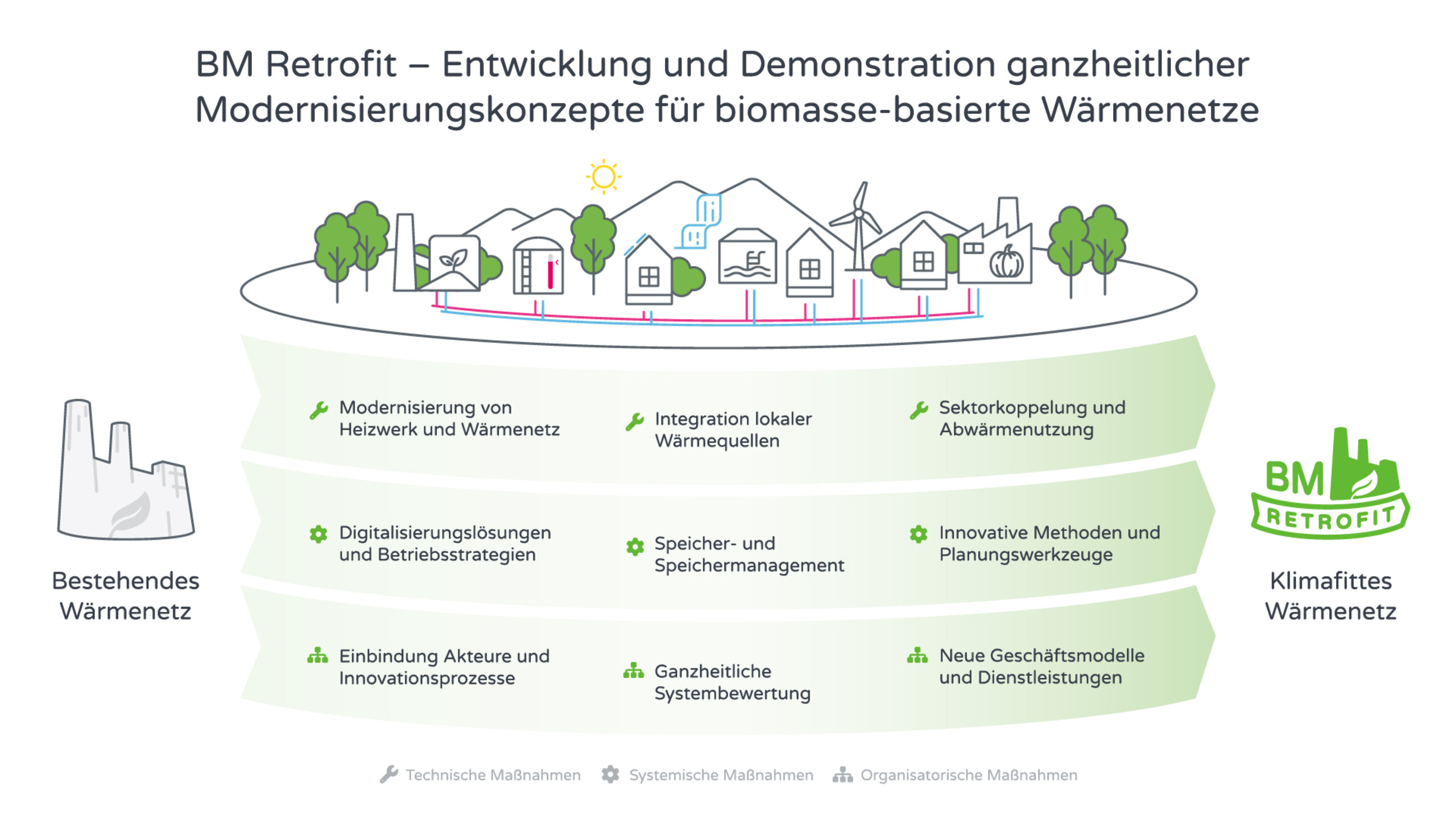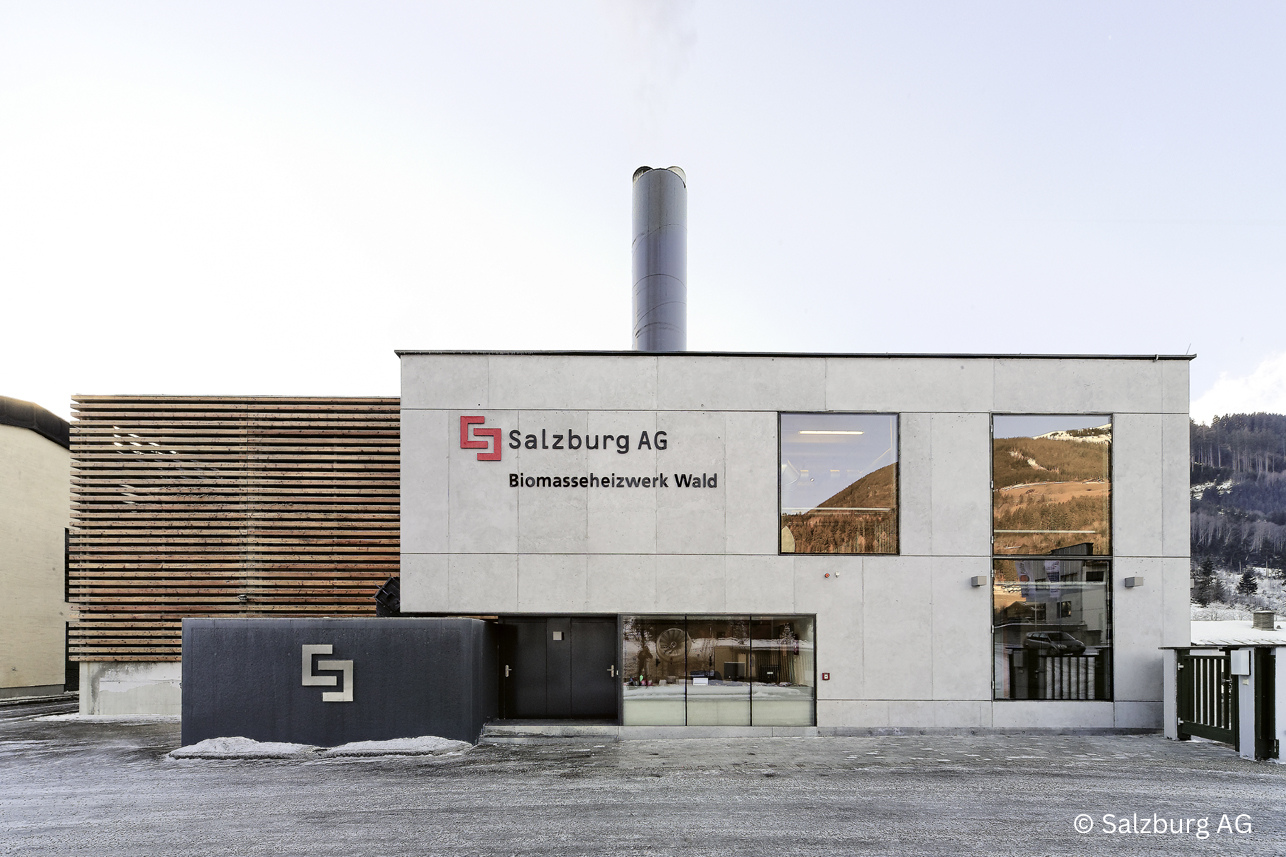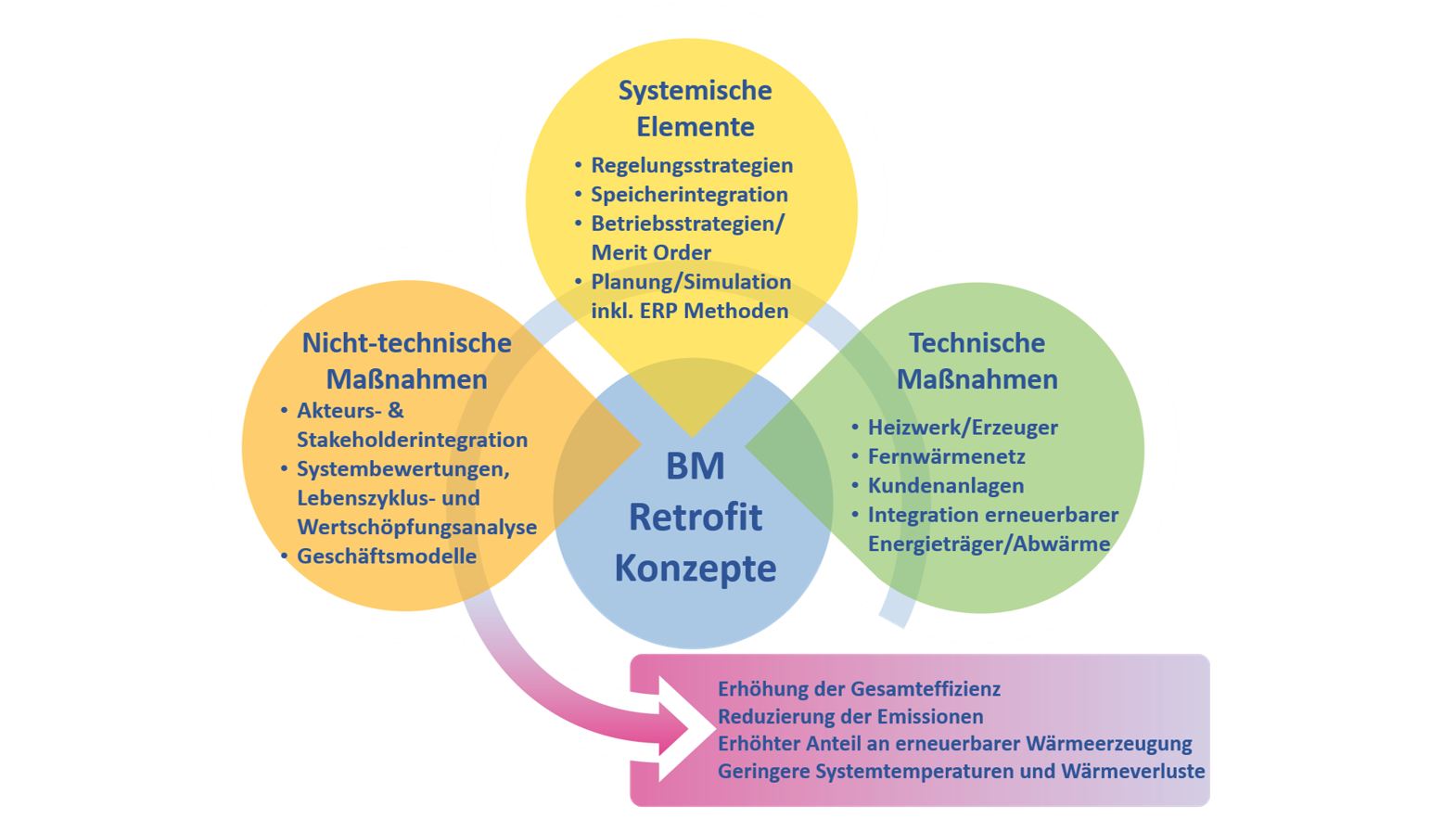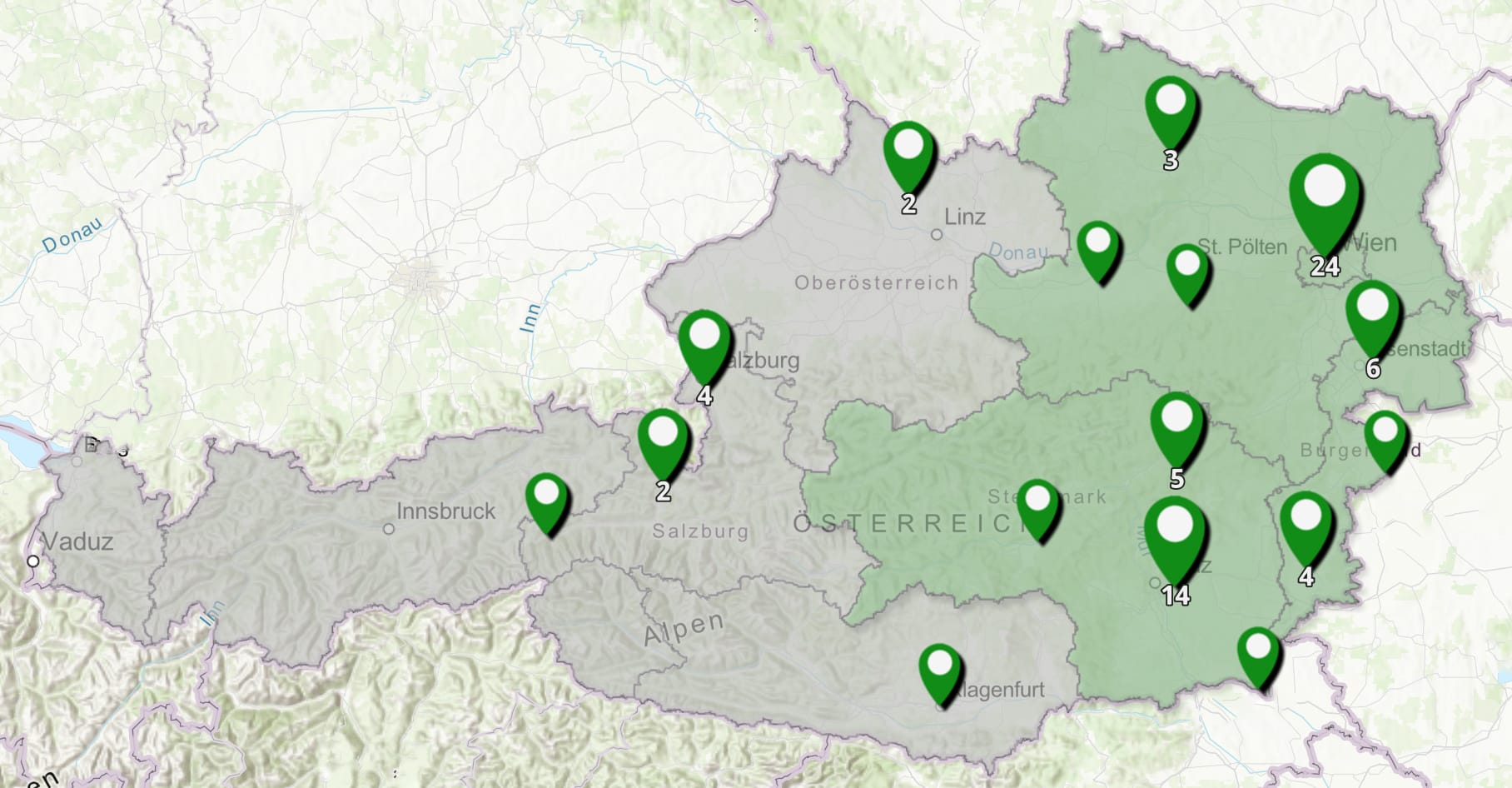BM Retrofit
Modernisation concepts for biomass-based district heating networks
This research project has been completed. Access the profiles of the demonstration sites (Wald im Pinzgau, Saalfelden, and Kreuzstetten) here (available in German only).
Biomass district heating networks and systems play a central role in sustainable heat supply and comprise about 2,400 systems in operation in Austria. There is currently an increased need for retrofitting and modernization of many of the existing heating networks in order to meet future technical, economic and regulatory challenges and to ensure a sustainable and targeted expansion.
In BM Retrofit, innovative technical concepts (e.g. flue gas condensation, heat pumps, storage technologies) are developed and optimized for efficient system integration. This ensures that innovative measures are further improved and integrated, leading to more sustainable and economical operation with reduced resource consumption and emission savings.
Objective of the project BM Retrofit
The aim of the project is to a) adapt and further develop existing heating networks to future requirements, b) make a significant contribution to the achievement of the set climate targets and c) strengthen the economic benefits, including local added value.
Systems integration, combined with the full involvement of relevant stakeholders and the expansion of services and business models, is currently not applied in practice when developing modernization concepts. As a result, the existing potential is not fully exploited.
Approach and methodology of the project BM Retrofit
In order to achieve the set goals, a holistic methodical approach is pursued and measures are implemented on different levels.
These include
- technical measures (e.g. optimization of biomass boilers and the heating network, use of secondary and efficiency-enhancing technologies, integration of renewable energy sources and waste heat, etc.)
- systemic elements such as progressive digitalization (e.g. intelligent sensors, new control concepts and operational sequence planning) or strategic planning of network expansion and densification with the help of energy space planning.
- and non-technical/organizational measures (e.g. actor involvement and stakeholder management, comprehensive innovative system evaluations as well as life cycle and value creation analyses) and finally economic aspects (e.g. business and billing models).
The BM-Retrofit approach thus enables the realization of a sustainable overall energy system a) with increased overall efficiency and flexibility, b) with the best possible use of renewable and local energy sources, c) by fully exploiting the synergies of existing infrastructures and d) by creating a future-proof and resilient system. This will result in significant reductions in greenhouse gas emissions and resource consumption, as well as increased security of supply and economic efficiency.
Demonstrators of the project BM Retrofit
The developed elements and solutions will be implemented in different biomass-based district heating networks (so-called demonstrators) and analyzed with accompanying data evaluation and holistic system validation including life cycle and value chain analysis. The identified optimization potentials and experiences from the entire innovation process will be summarized as best practices in a guideline. The technical, economic and environmental benefits are quantified. Furthermore, scaling scenarios will be developed to generate and evaluate the market potential and the impacts on the energy system.
“Retrofitting” is a particularly resource-efficient approach because it does not involve building from scratch, but rather upgrading and optimizing existing infrastructure. The “BM Retrofit” concept – BM stands for biomass – is intended to set a precedent for other locations. The BM Retrofit demonstrators serve as pilot and pioneer sites. For more information on the individual heating networks and demonstrators, please visit the linked detail pages.
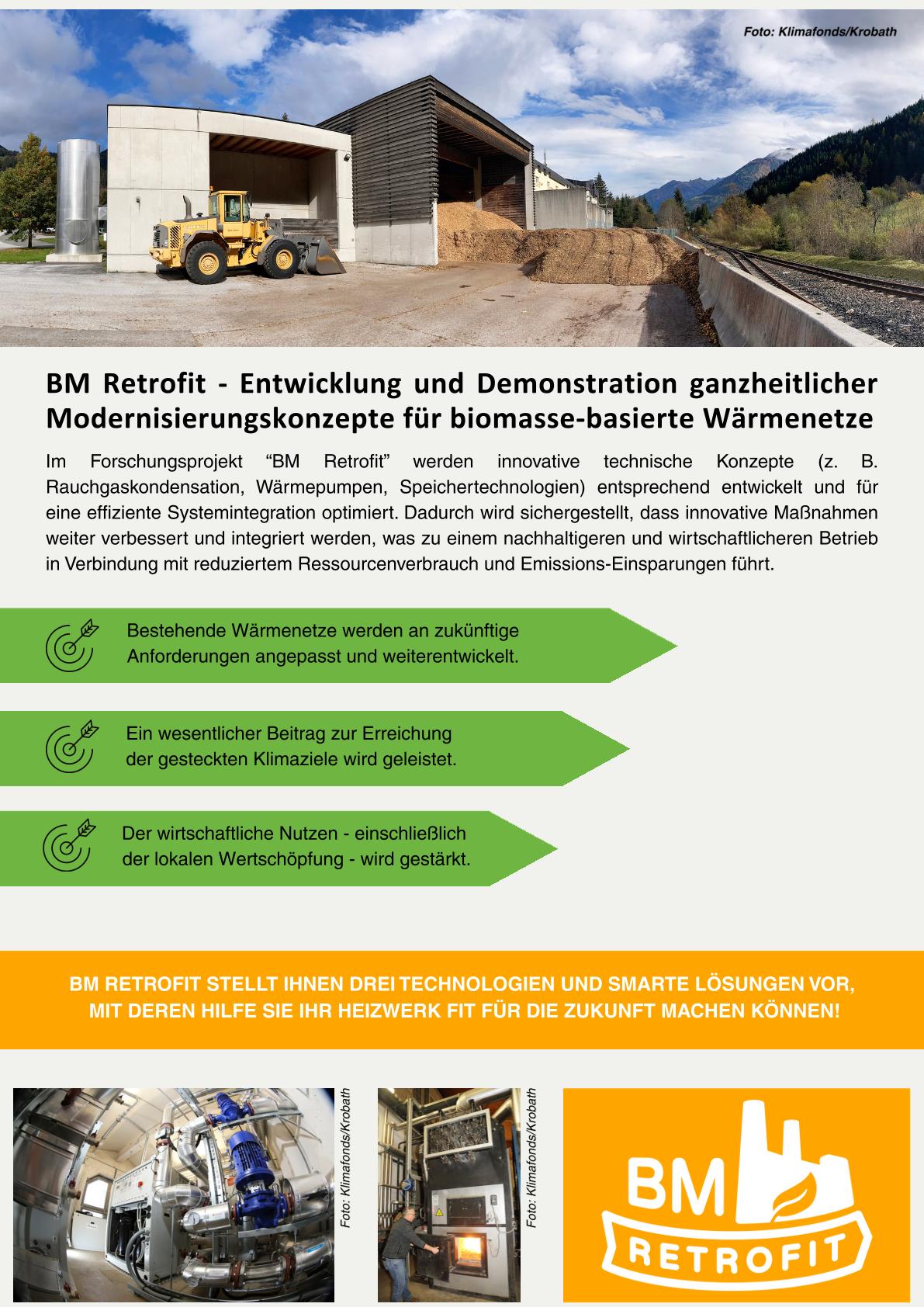
BM Retrofit solutions for heating network operators: optimised display for mobile phones. Click on the image to download the PDF (german only)! You can also find here the information sheet in print format (german only).
The following model solutions were being developed in the BM Retrofit project:
Holistic modernization concept for biomass-based District Heating systems
Media reports on the project
Increased efficiency and decarbonization of heating networks – TGA 2024 (special edition)
Around 50 percent of Austria's energy requirements are needed in the heating sector, whereby the current level of supply with fossil fuels is around 60 percent. Half of Austria's district heating supply alone is currently still based on fossil fuels. The BM Retrofit project is concerned with the development of highly efficient, biomass-based district heating systems as the basis for a climate-friendly heat supply.
To the articleIncreased efficiency and decarbonization of heating networks – AEE INTEC
As part of the practical BM Retrofit research project, holistic modernization and expansion concepts for existing biomass-based heating networks are being developed. The developed elements and solutions are implemented in various biomass-based district heating networks, so-called demonstrators, and analyzed with accompanying data evaluation and holistic system validations including life cycle and value chain analysis.
To the articleProject to modernize biomass-based heating networks successfully launched – Nachhaltige Technologien 01/2023
Biomass-based district heating networks and systems play a central role in sustainable heat supply and comprise around 2,400 systems in operation in Austria. The BM Retrofit project is dedicated to the development and demonstration of holistic modernization concepts and the expansion of existing biomass-based district heating networks and systems.
To the article